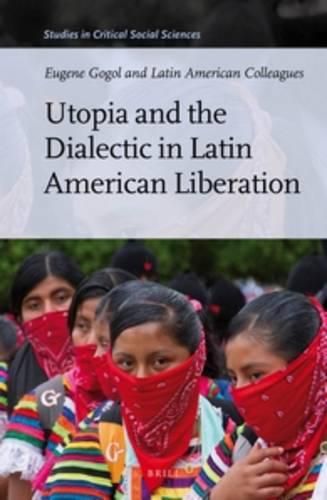Readings Newsletter
Become a Readings Member to make your shopping experience even easier.
Sign in or sign up for free!
You’re not far away from qualifying for FREE standard shipping within Australia
You’ve qualified for FREE standard shipping within Australia
The cart is loading…






Utopia and the Dialectic in Latin American Liberation begins by examining the concept of utopia in Latin American thought, particularly its roots within indigenous emancipatory practice, and suggests that within this concept of utopia can be found a resonance with the dialectic of negativity that Hegel developed under the impact of the French Revolution, further developed by such thinker-activists as Marx, Lenin and Raya Dunayevskaya. From this theoretical-philosophical plane, the study moves to the liberation practices of social movements in recent Latin American history. Movements such as the Zapatistas in Mexico, Indigenous feminism throughout the Americas, and Indigenous struggles in Bolivia and Colombia, are among those taken up–most often in the words of the participants. The study concludes by discussing a dialectic of philosophy and organization in the context of Latin American liberation.
$9.00 standard shipping within Australia
FREE standard shipping within Australia for orders over $100.00
Express & International shipping calculated at checkout
Utopia and the Dialectic in Latin American Liberation begins by examining the concept of utopia in Latin American thought, particularly its roots within indigenous emancipatory practice, and suggests that within this concept of utopia can be found a resonance with the dialectic of negativity that Hegel developed under the impact of the French Revolution, further developed by such thinker-activists as Marx, Lenin and Raya Dunayevskaya. From this theoretical-philosophical plane, the study moves to the liberation practices of social movements in recent Latin American history. Movements such as the Zapatistas in Mexico, Indigenous feminism throughout the Americas, and Indigenous struggles in Bolivia and Colombia, are among those taken up–most often in the words of the participants. The study concludes by discussing a dialectic of philosophy and organization in the context of Latin American liberation.